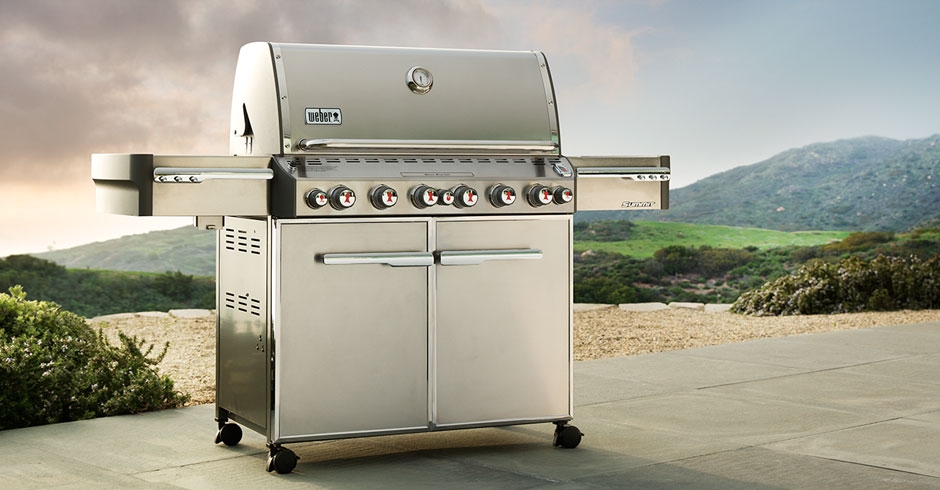You might be wondering a few things when buying a new barbecue, like: How much does it cost? How many BTUs? What is the warranty?
While your first thought may jump to the price, the quality of your food far outweighs the price you’ve paid. After all, you don’t want to be risking long-term disappointment for a one-time bargain.
Before you’re ready to shop, compile a list of features you’re looking for in a barbecue. While shopping, you can refer to your list, and you change your budget if you’re considering extra features.
To make things easier, Weber offers five guidelines for when you choose your next grill:
1. The Elements of a Gas Grill
Know the foundation of the grill you want. A Weber gas grill features up to six burners. Above the burners, you’ll find a system like the Flavorizer bars, lava rock or ceramic briquettes, which disperses the burners’ heat. Above the heating system, you’ll find the cooking grates.
2. The Cooking System
When cooking on a gas grill, there are usually two methods to cook: using indirect heat, and using direct heat. If you cook using the indirect heat method – meaning you like to grill up roasts, whole chickens, or turkeys – you’ll need a grill with two or more burners. If you cook using the direct heat method – meaning you stick to smaller stuff like steaks, burgers, or chicken pieces – you can get away with only one burner.
Food drippings can accumulate by the heat source until they reach a flash point and burn off. Sometimes these drippings can pool together and cause a flare-up. Weber has pioneered a steel bar system (the Flavorizer bars) that funnels grease away from the burner flames to reduce the chances of flare-ups.
3. BTUs (British Thermal Units)
BTUs are actually not a measure of cooking power – they indicate the volume of gas a grill can burn. While large grills with large cooking surfaces generally require higher BTUs, tightly engineered grills can use fewer BTUs and cook food more efficiently. However, too many BTUs can cause damage to the food and reduce the life of the grill. So, in this case, sometimes less is more!
4. Solid Construction
If it wiggles, don’t buy it! The best made grills are sturdy. While shopping, grab the sides or handles of a grill and give it a good shake. The cart should be solid, with the wheels rolling easily. If it’s not sturdy on the sales floor, it won’t be solid on your patio or deck!
5. Service and Warranty
Any quality-made grill should include excellent customer service. If you call the customer service line, which should be toll-free, you can talk to a real person and see what kind of service you’ll receive after the sale. Be sure to read the warranty and the fine print, and remember: the best warranties are uncomplicated.
For more barbecue buying tips, visit www.weber.com.

